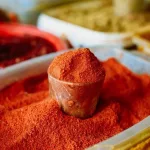Dandelion tea is widely available and simple to prepare. To reap its health perks, ensure the plants you harvest have not been exposed to pesticides or herbicides.
Often viewed as a nuisance by meticulous lawn owners, dandelions nonetheless offer notable advantages. These so-called “weeds” have a long history in traditional medicine and are still used for various remedies today.
When people refer to dandelion tea, they generally mean one of two beverages: an infusion made from the plant’s leaves or a brew made from roasted dandelion roots.
Both versions are typically safe—provided the plants haven’t been sprayed—and are consumed for multiple health-related reasons.

1. May reduce retained water
If you feel bloated, dandelion tea might help because it functions as a mild diuretic and can increase urine production. Studies have reported greater urine output after consuming two 1-cup servings of tea prepared from dandelion leaves.
2. Could support liver function
Dandelion root has traditionally been regarded as a “liver tonic” in folk systems of healing. Early research indicates this may be related to its capacity to stimulate bile flow.
Naturopaths argue this means dandelion root tea could assist in liver detoxification, improve certain skin and eye conditions, and ease symptoms associated with liver disorders. A 2017 study found that polysaccharides from dandelion might be beneficial for liver health.
3. Can serve as a natural coffee alternative
You can often purchase pre-roasted dandelion root products at health-food shops, or you can roast roots yourself if your lawn hasn’t been treated with insecticides.
Roots from young dandelion plants are roasted until dark brown. After steeping in hot water and straining, the liquid can be enjoyed as a coffee substitute.
4. Possible parallels with a weight-loss medication
A study suggests dandelion may produce effects comparable to Orlistat, a weight-loss drug that inhibits pancreatic lipase—an enzyme that breaks down dietary fat during digestion.
Experiments using dandelion extract in mice showed similar outcomes, leading researchers to suggest further investigation into dandelion’s potential anti-obesity properties.
5. May ease digestive complaints
Dandelion root tea is believed to offer several digestive benefits, though much of the support is anecdotal. Historically it has been used to stimulate appetite, calm minor digestive upsets, and potentially relieve constipation.
6. Potential anti-cancer prospects
Recently, researchers have examined dandelion root for possible cancer-fighting effects, with early findings appearing encouraging.
Research has shown that dandelion root extract can trigger cell death in melanoma cells while sparing normal cells. Other studies indicate similar activity against pancreatic cancer cells.
Although the anti-cancer properties of dandelion tea itself have not been fully evaluated, the initial results are promising.
7. May help prevent urinary infections
Combined with the herb uva ursi, dandelion roots and leaves might aid in preventing urinary tract infections. This effect is thought to come from antibacterial agents in uva ursi alongside dandelion’s urine-increasing action.
Possible adverse reactions
Dandelion is generally safe for most individuals, but some people may experience allergic reactions from contact or ingestion. Dandelion can also interact with certain medications, including diuretics, lithium, and ciprofloxacin.
If you take prescription drugs, consult your physician before adding dandelion tea to your routine.
How to prepare dandelion tea
If your yard is full of dandelions, you don’t necessarily need store-bought tea—just confirm the plants haven’t been chemically treated:
Flowers and leaves: Rinse, then steep in hot water for 15–20 minutes.
Roots: Wash thoroughly, chop finely, and roast in a hot oven for about two hours. Use 1–2 teaspoons of the roasted, ground root per cup and steep in hot water for roughly 10 minutes.
Summary
One of the most useful things about dandelion tea is how easy it is to obtain and prepare. Make sure the plants you collect haven’t been exposed to chemicals.
Harvest when the plants are young if possible. After washing and preparing the greens or roasted roots, pour boiling water over them, steep, strain, and enjoy your cup.
























Leave a Reply
You must be logged in to post a comment.